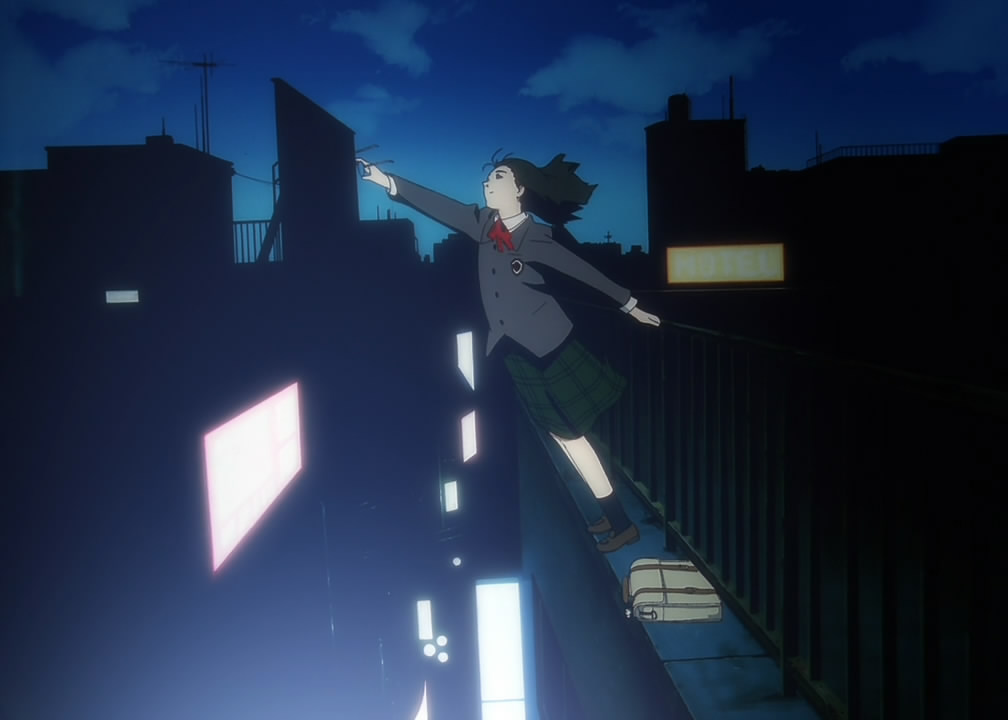I hate the "Best Animated Film" category at the Academy Awards. I understand its purpose, and without it, Spirited Away would never have earned its much-deserved Oscar in 2002, but it still provokes a great deal of ire for me. Although I wouldn't say I hate the category itself so much as the cultural understanding we have of film, and the relationship between animated and non-animated films which the category and award represent. In Japan, which has been the world's powerhouse in terms of great animated films and series since the mid-1990s, animated films and series are presented side-by-side with their live-action counterparts as art created for an adult audience. Sure, there are children's anime series, but they're a subcategory of a genre which is understood and respected as a complex medium.
The same cannot be said in the United States. Anime, until perhaps very recently, has been viewed as an extension of children's cartoons for maladjusted or immature teenagers. God help you if you're an outspoken anime fan as an adult, or the worst stereotypes about gamers in the late 90s and early 00s will be placed upon you fourfold. This is largely because our childhoods as Americans are defined by animated films, from the Disney Classics dating back to the 1940s to the 3D animated films from Pixar and Dreamworks which my generation grew up with. Many from my generation were also introduced to anime from the late 90s and 2000s in our late childhood and early adolescence, due to the arduous and slow nature of distribution at the time. These were series which were wholly inappropriate for children (more due to their complexity and adult outlook on life than their content), but which our parents allowed us to see because they looked like cartoons.
And thus, we reap what we sow. Because we were allowed to watch Fullmetal Alchemist as children, the culture does not respect Samurai X as an adult film. Because our culture associates animation with childishness, our whole understanding of film is skewed. In what sane culture is Grave of the Fireflies not seen as a defining World War II film while Saving Private Ryan and The Thin Red Line are? An ethnocentric culture, for certain, but also one in which we are all told repeatedly that animation has no effect on us as adults, that it can do nothing as well as real actors, real directors, and real life movies. Sure, there is a point to be made about the charismatic effects of real actors, who are allowed to use body language and improvise in a way which carefully animated characters cannot. But to me, there's nothing more real than watching the detailed exploration of Hidekai Anno's 4-year period of depression in Neon Genesis Evangelion. I can't think of any film which has transported me so completely into such a richly imagined and weirdly believable universe than Spirited Away. And never, ever, in the hundreds of movies I've doubtless seen, has there been a romance I feel so much for, and so completely for, than Kenshin and Tomoe's in Samurai X.
But there is hope for the future. For the first time I can remember (meaning possibly ever), there is a contemporary anime series (Attack on Titan) aimed at adults which is popular in the United States. Is it an outgrowth of nerd culture becoming cool, a mere byproduct of the phenomenon of comic book heroes starring in blockbuster movies? Perhaps. There's a reason it'll be the first series I write about in this blog. But I sure am glad that I can talk about an anime (that is, pretty much just the one anime so far) as an adult without drawing looks of terror or pity. But great as Shingeki no Kyojin is, there are many superior series which it borrows heavily from, without which it could not exist.
In this blog, I want to write about anime; primarily my favorites, but sometimes my least favorites. Primarily about series, but occasionally delving into film. Really, it's a very personal project. I want to write about anime in the way I wish it was written about; with the same attention to detail, love and respect that great live-action series do. Despite the pretentious title, I am by no means an expert on film or anime. I just want to explain why Evangelion and Serial Experiments Lain and even FLCL mean more to me than even great series like Breaking Bad. My name is Thom Hood, and this is The Anime Criterion.


.png)
No comments:
Post a Comment